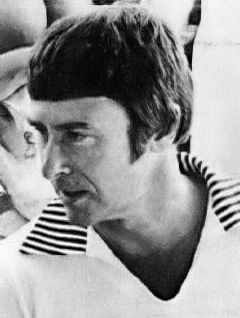A Quote by Paul Davies
So how can we test the idea that the transition from nonlife to life is simple enough to happen repeatedly? The most obvious and straightforward way is to search for a second form of life on Earth. No planet is more Earth-like than Earth itself, so if the path to life is easy, then life should have started up many times over right here.
Related Quotes
Our planet has been around only for four and a half billion years. Let's imagine a planet that has life on it such as life is on Earth and it's seven billion years old. Let's say that planet evolved intelligence. Well, that intelligence would be way more advanced than what we call intelligence here on Earth. How long has intelligence been around on Earth as we've come to define it?
I should say we know that there are many, many other Earths out there. We're almost certain that there will be upwards of a billion Earth-like planets in our galaxy alone, so there is no lack of real estate where life might happen, but what we don't know is how likely it is given the real estate, given a wonderful pristine planet like Earth how likely is it that life will pop up inhabited? We don't know the answer to that.
Carbon dioxide is natural. It occurs in Earth. It is a part of the regular lifecycle of Earth. In fact, life on planet Earth can’t even exist without carbon dioxide. So necessary is it to human life, to animal life, to plant life, to the oceans, to the vegetation that’s on the Earth, to the, to the fowl that - that flies in the air, we need to have carbon dioxide as part of the fundamental lifecycle of Earth.
People ask: Why should I care about the ocean? Because the ocean is the cornerstone of earth's life support system, it shapes climate and weather. It holds most of life on earth. 97% of earth's water is there. It's the blue heart of the planet - we should take care of our heart. It's what makes life possible for us. We still have a really good chance to make things better than they are. They won't get better unless we take the action and inspire others to do the same thing. No one is without power. Everybody has the capacity to do something.
If the human species, or indeed any part of the biosphere, is to continue to survive, it must eventually leave the Earth and colonize space. For the simple fact of the matter is, the planet Earth is doomed... Let us follow many environmentalists and regard the Earth as Gaia, the mother of all life (which indeed she is). Gaia, like all mothers, is not immortal. She is going to die. But her line of descent might be immortal. . . . Gaia's children might never die out-provided they move into space. The Earth should be regarded as the womb of life-but one cannot remain in the womb forever.
Clay can be a metaphor for many things. I made it a metaphor for flesh and earth, and these are two kinds of generic givens of life, if you look at it poetically, biblically, the idea of the life of beings, of man, being transitory, the earth abides-ashes to ashes, dust to dust-man returns to earth, grows out of earth like a flower, wilts, goes back to the earth... We are frail, transitory creatures with aspirations of immortality, conscious of our inevitable death, and we have to deal with it somehow.
It is the hope of those who work toward the breakout from planet Earth that the establishment of permanent, self-sustaining colonies of humans off-Earth will ... make human life forever unkillable, removing it from the endangered species list, where it now stands on a fragile Earth overarmed with nuclear weapons. Second, the opening of virtually unlimited new land areas in space will reduce territorial pressures and therefore diminish warfare on Earth itself.
To conquer a piece of earth and make it as beautiful as one can dream of it being: That is art, too. A man cannot be separated from the earth. I come out of the garden every day feeling, oh, inspired in a way that one needs in order to convert the daily-ness of the life into something greater than that little life itself.
































